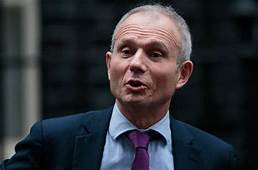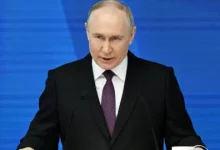
The government and Labour are “testing out” each other’s ideas as they try to resolve the Brexit deadlock, cabinet minister David Lidington has said.
He told the BBC they had a “fair bit in common” over future customs objectives but further compromise was needed.
While there was no deadline, he said the sides would “take stock” in 10 days and the process could not drag out.
But former Conservative leader Iain Duncan Smith said the process was a “recipe for disaster” for his party.
He called for Prime Minister Theresa May to make way for a new Conservative leader next month – but Mr Lidington insisted replacing the prime minister would “not change the arithmetic in Parliament”.
Talks between the government and Labour are set to continue over the Easter parliamentary recess in the hope of finding a Brexit agreement that will be acceptable to Members of Parliament (MPs).
A series of working groups in key areas, such as environmental standards, security and workers’ rights, have been set up to try and find common ground.
The European Union (EU) has insisted the terms of the UK’s withdrawal, rejected three times by MPs, cannot be renegotiated – but there is scope to strengthen the political declaration, a document setting out the parameters of the UK’s future relations with the EU, ahead of the new Brexit deadline of October 31.
Mr Lidington, who is regarded as Mrs May’s de facto deputy, said he had not set a deadline for the talks to produce a result but the public wanted Parliament to resolve their differences quickly.
“I don’t think the question can be allowed to drag out for much longer,” he said.
Asked whether the government could drop its opposition to a customs union with the EU, as demanded by Labour, Mr Lidington said both sides had well-known “public positions”.
He suggested the two sides were considering whether there was a “mechanism” to deliver the benefits of a customs union, such as tariff and quota-free trade with the EU, while also enabling the UK to have an independent trade policy and input into EU agreements affecting the UK.
“What we have found in terms of objectives… there is a fair bit that both parties would have in common,” he said. “If we are going to find an agreement there needs to be movement on both sides. –BBC





